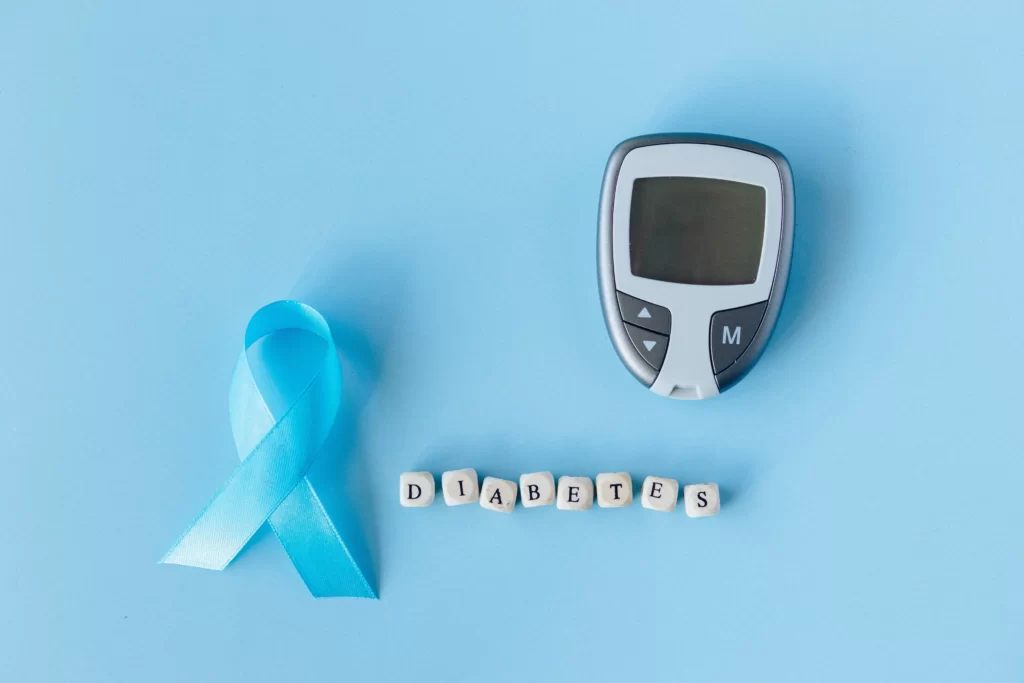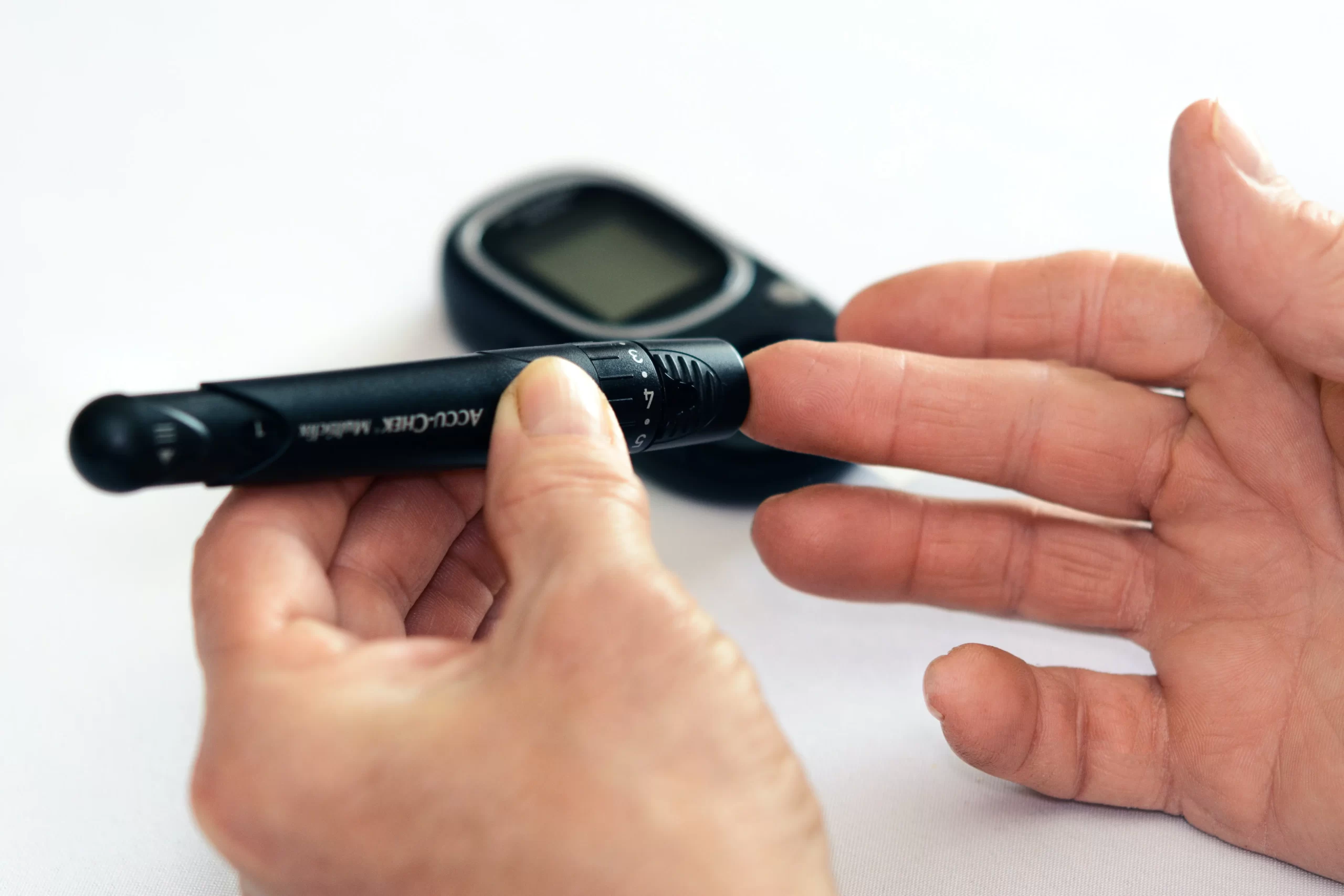Gestational diabetes 2023 is a metabolic condition in which blood sugar levels are raised during pregnancy, as compared to the normal range in the pre pregnancy state.

Gestational diabetes can causes increase in blood sugar levels in body as a result it can affect the normal pregnancy as well as baby health.
Usually sugar levels return to normal after delivery in gestational diabetes, but it raises the risk of getting type 2 diabetes mellitus in later life.
How to control Gestational diabetes
Gestational diabetes can be controlled by taking healthy diet, exercise, meditation and medicines.
Gestational Diabetes symptoms
Mostly Gestational Diabetes is identified at the time of routine screening in pregnancy when your doctor prescribe initial essential tests in pregnancy. Usually gestational diabetes does not have any specific signs and symptoms, still there are certain symptoms which can’t be ignored during pregnancy. These symptoms are as follows:-
- Feeling very thirsty and hungry.
- increased frequency of urine
Sometimes the baby weight increases more as compared with the period of gestation, and then your doctor may order repeat blood test even if previous sugar levels were normal in routine screening of pregnancy.
Causes of Gestational Diabetes (GDM)
Exact cause of getting gestational diabetes can not be found out, that why some women get gestational diabetes and others do not.
When you eat your food, pancreas release insulin , which is a hormone that metabolises glucose which is used for energy.
In pregnancy, placenta releases a hormone that causes glucose to accumulate in the body. Normally, pancreas secrete insulin to handle the glucose load. But in diabetes this glucose load can not be handled if your body is unable to make enough insulin.
Risk factors for developing gestational diabetes(GDM)
There are certain risk factors that increases the chances of getting gestational diabetes. These are:-
- Increased in pre pregnancy weight
- Family history of diabetes either maternal or paternal side.
- History of gestational diabetes in previous pregnancy.
- If you are not physically active.
- If you are suffering from PCOS
- If you have history of unexplained intrauterine death in previous pregnancy.
- History of giving birth to a stillborn baby, or baby with birth defects or a large baby.
- Other medical conditions like high blood pressure, heart disease, high cholesterol levels.
Diagnosis of GDM
Diagnosis is made by testing blood sugar levels in pregnancy. It is around 24 weeks that gestational diabetes usually develops. So your doctor may prescribe tests to know the sugar levels. Some prefer glucose challenge test for screening, others do oral glucose tolerance test (oGTT) to diagnose.
If you are at high risk for developing GDM, your doctor may prescribe the test in early pregnancy also.
OGTT test You will be provided 75 grams of glucose in water to drink, and then blood test is done.
Some do 4 sample test i.e fasting, after 1,2,3 hours of drinking glucose drink respectively.
In a 4 sample test , GDM will be diagnosed if you have at least 2 of the following values.
Others prefer 2 sample test i.e blood sample fasting and then 2 hour blood sample.
| Time after drinking glucose drink | Blood sugar values in mg/dl |
|---|---|
| Fasting | Greater than or equal to 95 |
| 1 hour | Greater than or equal to 180 |
| 2 hour | Greater than or equal to 155 |
| 3 hour | Greater than or equal to 140 |
Others prefer 2 sample test. In this fasting blood sugar levels and levels after 2 hours of drinking glucose are taken.
Results are interpreted by seeing the 2 hour blood glucose levels
| Blood glucose level in mg/dl | Interpretation |
|---|---|
| Less than 140 | Normal |
| Between 140 to 200 | Impaired glucose tolerance |
| More than 200 | Gestational diabetes/diabetes mellitus |
Complications of GDM
Gestational diabetes if carefully managed through out pregnancy and if blood sugar levels are kept in normal range then pre an go smoothly. But if sugar levels are high then there may be problems for you and your baby.
Complications that affect baby
Baby is at increased risk for:-
1. Excessive birth weight / Macrosomic babies – who have birth weight of 4kg or more. Increased birth weight can cause birth injuries during vaginal delivery or there may be a need for c- section.
2. Preterm babies – There is a risk of preterm labour pains and early premature delivery if blood sugars are raised. Your doctor may also advise early delivery if baby is large or if sugars levels are uncontrollable despite the medicines.
3. Sudden intrauterine death or still birth.
4. Respiratory difficulties in baby- Lung maturity in a baby whose mother is GDM occurs late, so there may be difficulty in breathing after birth. The baby may develop fast respiratory rate and may require NICU admission.
5. Neonatal hypoglycemia – These babies have chances of hypoglycaemia ( decreased sugar level) after birth especially in initial 24 hours. The hypoglycaemia can lead to seizures in the baby, these are called hypoglycaemic seizures. So feeding should be started immediately after birth.
6. Obesity and type 2 diabetes in later life.
Complications that will affect you
1. High blood pressure and pre eclampsia – GDM increases the risk of developing high BP in pregnancy which may complicate to development pre eclampsia/ eclampsia.
2. Increased chances of C-section delivery.
3. Diabetes in later life or in future pregnancy.
Prevention from GDM
You can lower your risk of getting GDM before getting pregnant.
1. Maintain healthy pre pregnancy body weight.
2. Manage your PCOS.
3. Take healthy diet.
4. Stay active and exercise regularly.
Also Read: Fertilization – What you should know to get Pregnant ?




